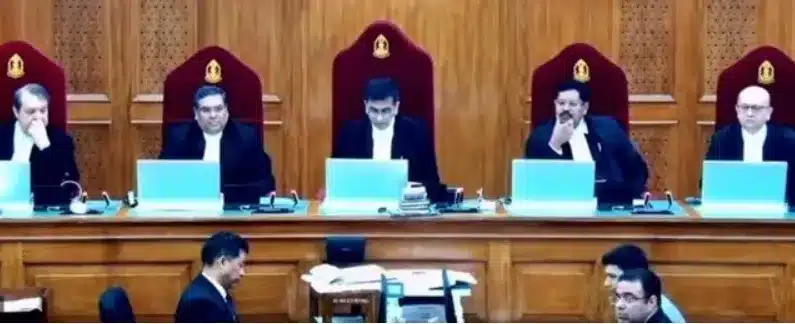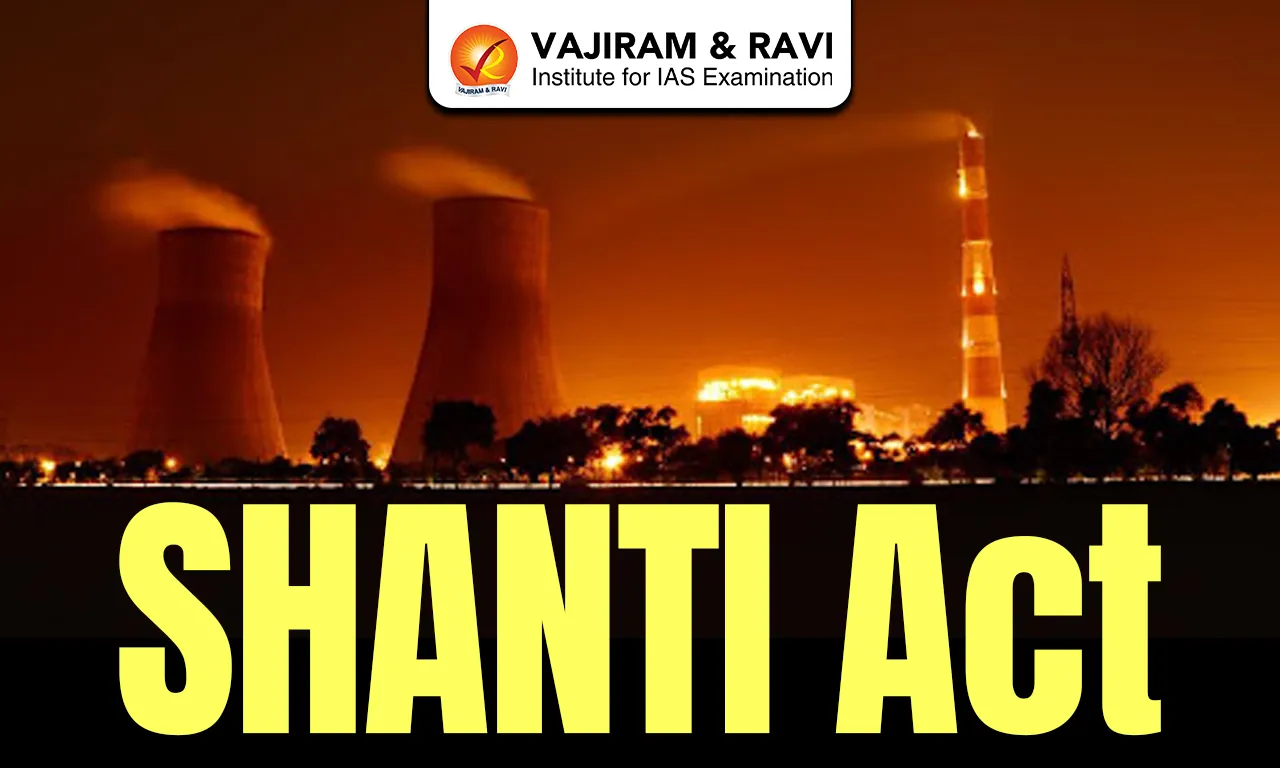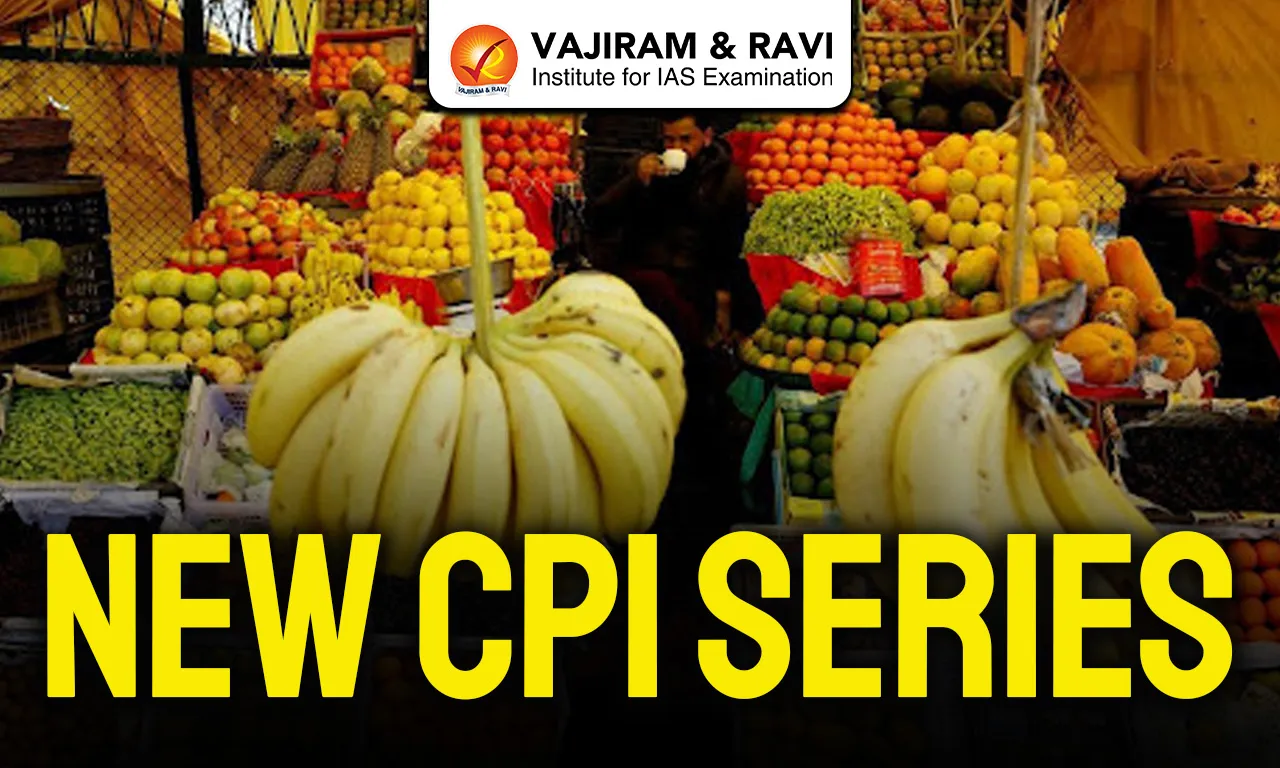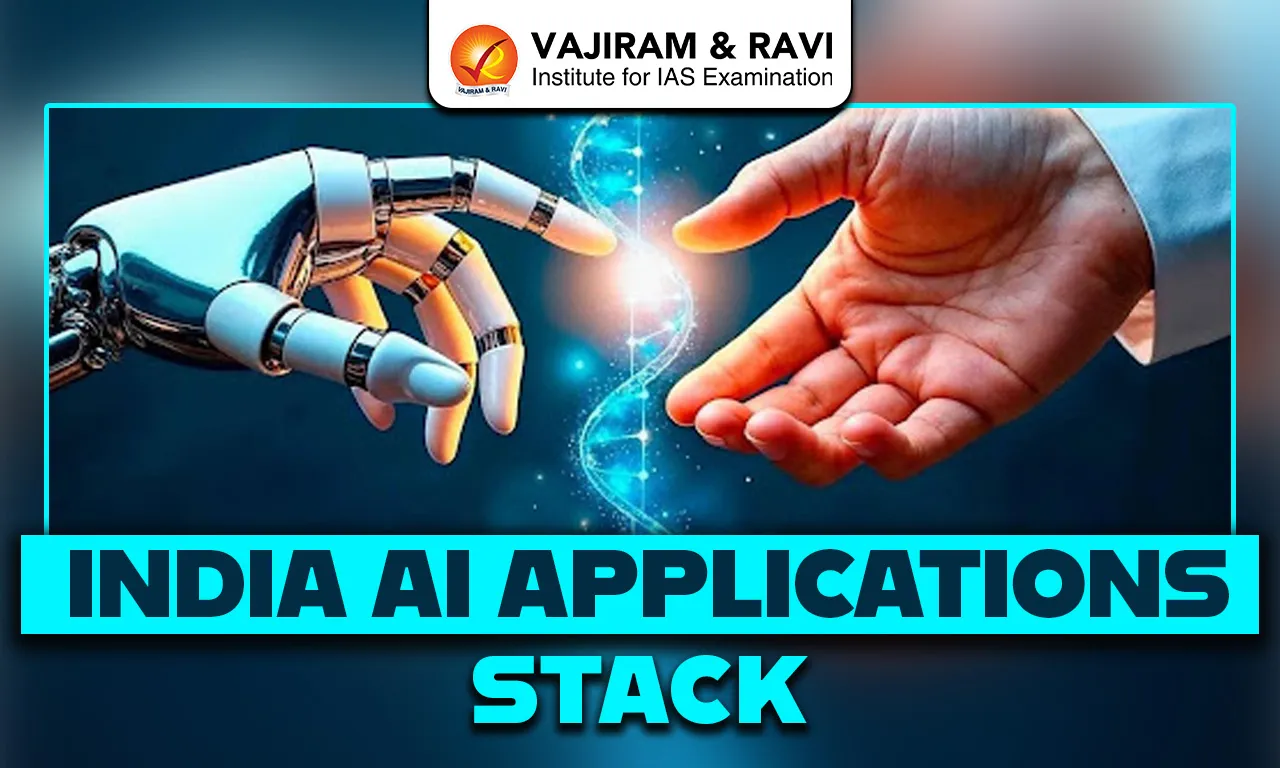What’s in today’s article?
- Why in news?
- What are Electoral bonds (EBs)?
- What are the key features of electoral bonds?
- Proportionality test and Electoral Bond Scheme (EBS)
- News Summary; Supreme Court strikes down electoral bonds scheme
- Key highlights of the SC judgement
Why in news?
- A five-judge Constitution Bench of the Supreme Court unanimously struck down the Centre’s Electoral Bond Scheme (EBS) for being unconstitutional.
- It underscored that the scheme violates the right to information under Article 19(1)(a) of the Constitution.
- Along with the EBS, the Apex Court also struck down several amendments that the government made in key laws to facilitate corporate donations to political parties.
- The amendments were made through The Finance Act, 2016, and The Finance Act, 2017, before the EBS was introduced in January 2018.
Electoral bonds (EBs)
- About
- Electoral bonds are a financial instrument introduced by the Government of India in 2018 to facilitate anonymous political donations.
- An electoral bond is a bearer instrument, like a promissory note, that is payable to the bearer on demand to donate their contributions to political parties.
- Who are eligible to receive electoral bonds?
- There are certain criteria that political parties must meet to be eligible to receive electoral bonds. These are:
- Recognition: The political party must be registered under Section 29A of the Representation of the People Act, 1951.
- Recent Election Performance: The party must have secured at least 1% of the votes polled in the most recent Lok Sabha or State Assembly election.
- There are certain criteria that political parties must meet to be eligible to receive electoral bonds. These are:
- Available denominations
- The Government of India has specified various denominations for electoral bonds, ranging from Rs. 1,000 to Rs. 1 crore.
- Authorized bank: SBI is the only bank authorised to sell these bonds.
- Working
- A citizen of India or a body incorporated in India is eligible to purchase the bond.
- EBs are issued/purchased for any value, in multiples of Rs 1,000, Rs 10,000, Rs 1,00,000, Rs 10,00,000 and Rs 1,00,00,000 from the specified branches of SBI.
- The bonds shall be available for purchase for a period of 10 days each in the months of January, April, July and October as may be specified by the Central Government.
- The bond can be encashed by an eligible political party only through a designated bank account with the authorised bank.
Key features of electoral bonds
- Anonymity:
- Electoral bonds provide anonymity to the donor by not revealing the identity of the donor to the public or the recipient political party.
- Purchase and Redemption:
- Electoral bonds can be purchased from authorized banks using legal tender.
- They are available in fixed denominations, and the minimum value of an electoral bond is set by the government.
- Validity:
- Electoral bonds are valid for a limited period, typically 15 days, during which they can be used for making donations to eligible political parties.
- Transparency:
- While the names of donors remain anonymous, the political parties receiving the electoral bond donations are required to disclose details of the donations in their financial statements to the Election Commission of India.
Proportionality test and Electoral Bond Scheme (EBS)
- For the scheme to be considered legitimate, the government scheme would have to essentially satisfy three aspects.
- This was based on the court’s proportionality test, laid down in its 2017 verdict in the KS Puttaswamy case over the right to privacy.
- First, the existence of a law.
- The electoral bond key was brought through the Finance Act which introduced the series of amendments in the Income Tax Act and the Representation of People’s Act.
- Second, the law must demonstrate a legitimate state interest, which has nexus to the object sought to be achieved by the Parliament.
- As per the govt, the objectives of EBS range from curbing black money to protecting the privacy of the donors.
- The third is whether the encroachment on fundamental rights is proportional to the objection sought to be achieved.
- As per the apex court, in EBS, the state did not adopt the least restrictive method.
- As an example of the least restrictive methods, the court cited the ₹20,000 cap on anonymous donations.
- Hence, the apex court held that an infringement of the right to information is not proportionally justified to curb black money in electoral financing.
News Summary; Supreme Court strikes down electoral bonds scheme
- Prioritising voters’ right to information regarding political parties’ sources of funding, the Supreme Court struck down the Electoral Bonds Scheme (EBS).
- Petitions were filed by the Communist Party of India (Marxist), and NGOs Common Cause and ADR.
- The court also struck down the amendments made to key laws on electoral finance which were introduced in the lead up to the introduction of EBS.
Key highlights of the judgement
- EBS violates voters’ right to information
- The court held that information on the funding of political parties is essential for voting.
- Economic inequality leads to political inequality because money is closely tied to politics.
- Having more money provides better access to lawmakers and raises the potential for quid pro quo or mutually beneficial deals, like favourable policy changes.
- Therefore, the scheme violates the right to information under Article 19(1)(a), which guarantees the freedom of speech and expression.
- Restrictions are disproportionate to the stated goal of curbing circulation of black money
- The court held that the RTI can only be restricted based on Article 19(2), which speaks of the reasonable restrictions to freedom of speech and expression.
- It does not include curbing black money as a restriction.
- Even assuming curbing black money is a legitimate purpose, it is not proportional to the restrictions posed by this scheme.
- Right to donor privacy is not absolute
- The court considered whether the right to donor privacy includes information about a citizen’s political affiliation.
- If yes, is a financial contribution to a political party an aspect of political information?
- In the Puttaswamy judgment, the court said that the right to informational privacy includes political affiliation.
- Forming political beliefs is the first stage of political expression, and political expression cannot be expressed freely without the privacy of political affiliation.
- Information can be used by the state to suppress dissent and discriminate by denying employment.
- The court highlighted two main reasons for financial contributions to political parties: support and quid pro quo.
- It rejected the notion of allowing corporate donations to obscure the motives behind contributions from other groups.
- The court affirmed the right to informational privacy for political contributions, regardless of corporate involvement.
- However, it clarified that privacy does not cover contributions aimed at influencing policies, only genuine political support.
- Hence, the apex court was of the view that the right to donor privacy is not absolute.
- Unlimited political contributions by companies is unconstitutional
- The court said this cannot be permitted. The ability of companies to influence the political process through contributions is much higher compared to individuals.
- Contributions made by companies are purely business transactions made with the intent of securing benefits in return.
Q1) What is Representation of the People Act, 1951?
The Representation of the People Act, 1951 is a law that regulates the conduct of elections in India. It was passed by Parliament in accordance with Article 327 of the Constitution of India.
Q2) What is Article 19(1)(a) of the Constitution?
Article 19(1)(a) of the Constitution of India guarantees all citizens the right to freedom of speech and expression. This includes the right to express their views and opinions freely, not only through words but also through writings, pictures, movies, and banners.
Source: SC strikes down electoral bonds scheme as ‘unconstitutional’: What grounds did the verdict rely upon? | Indian Express | The Hindu
Last updated on February, 2026
→ UPSC Notification 2026 is now out on the official website at upsconline.nic.in.
→ UPSC IFoS Notification 2026 is now out on the official website at upsconline.nic.in.
→ UPSC Calendar 2026 has been released.
→ Check out the latest UPSC Syllabus 2026 here.
→ Join Vajiram & Ravi’s Interview Guidance Programme for expert help to crack your final UPSC stage.
→ UPSC Mains Result 2025 is now out.
→ UPSC Prelims 2026 will be conducted on 24th May, 2026 & UPSC Mains 2026 will be conducted on 21st August 2026.
→ The UPSC Selection Process is of 3 stages-Prelims, Mains and Interview.
→ Prepare effectively with Vajiram & Ravi’s UPSC Prelims Test Series 2026 featuring full-length mock tests, detailed solutions, and performance analysis.
→ Enroll in Vajiram & Ravi’s UPSC Mains Test Series 2026 for structured answer writing practice, expert evaluation, and exam-oriented feedback.
→ Join Vajiram & Ravi’s Best UPSC Mentorship Program for personalized guidance, strategy planning, and one-to-one support from experienced mentors.
→ UPSC Result 2024 is released with latest UPSC Marksheet 2024. Check Now!
→ UPSC Toppers List 2024 is released now. Shakti Dubey is UPSC AIR 1 2024 Topper.
→ Also check Best UPSC Coaching in India






















